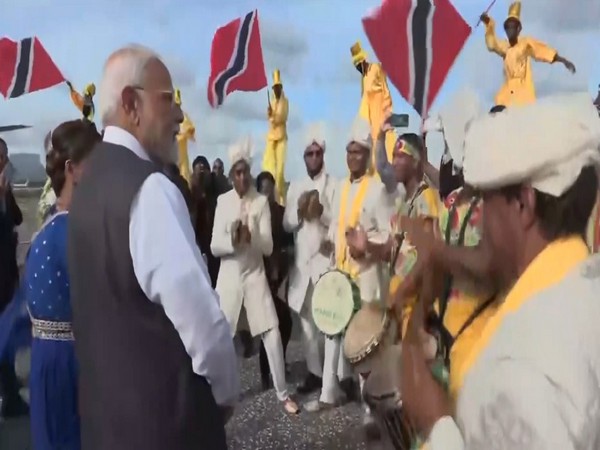
On July 17, Rwanda and Antigua and Barbuda signed a series of agreements designed to enhance bilateral cooperation between the two nations in areas of mutual interest. The agreements were signed by Rwanda's new ambassador to the United Nations, Amb. Martin Ngoga, and Amb. Walton Webson from Antigua and Barbuda, in New York. Here are 10 key facts about Antigua and Barbuda: 1. A twin-island country in the Caribbean Antigua and Barbuda spans 442 square kilometers and consists of two main islands, Antigua and Barbuda, along with several smaller ones. It is an independent state with its capital, Saint John's, located in the Lesser Antilles of the eastern Caribbean Sea, at the southern end of the Leeward Islands chain. The nation is a constitutional monarchy with a British-style parliamentary system and is represented by an appointed Governor General as the head of state. 2. Home to 365 beaches If you love the beach, Antigua might be your ideal destination. Antigua has over 365 beaches, all pristine with white sand and surrounded by turquoise waters. These beautiful beaches, along with coral reefs and clear waters, make the country a top global tourism spot. Some of the most famous beaches include Dickenson Bay, Half Moon Bay, Pigeon Point Beach, Ffryes Beach, Jolly Beach, and Long Bay Beach, known for their soft, white sand, clear turquoise waters, and various water activities such as snorkeling, swimming, and watersports. 3. English is widely spoken Antigua and Barbuda is a member of the Commonwealth since 1981, the same year it gained independence from the United Kingdom. The primary language spoken by the people of Antigua and Barbuda is Antiguan and Barbudan Creole. However, due to the country’s history as a former British colony, English is also widely spoken and serves as the official working language. English is the official language of Antigua. Spanish is also spoken by more than 10,000 inhabitants. 4. Population of 104,000 people With a population of over 104,000 people, it's one of the smallest countries in the world. However, it makes a significant impact in diplomacy, tourism, and sports. The population includes both residents and those temporarily abroad. Life expectancy is approximately 75.6 years for men and 80.1 years for women. The majority of the population is of African descent, and two-thirds are Christian, with the largest proportion being Anglican. 5. Citizenship by investment Antigua and Barbuda offers a Citizenship by Investment Program, which attracts foreign investors. Although not related to the visa waiver, it is a well-known economic strategy in the region. According to the country's Citizenship by Investment website, the top-ranked Caribbean passport program grants lifetime citizenship to international investors who contribute at least $100,000 (donation option from October 2020) or invest $200,000 in real estate. Processing is typically quick, taking three to four months. The passport is valid for five years initially and can be easily renewed later for a modest fee of $350 (approximately Rwf500,000). 6. Tourism is the biggest economy driver According to the National Bureau of Statistics in Antigua and Barbuda, the country's tourism industry plays a significant role in its Gross Domestic Product (GDP), contributing more than half of the GDP. Reports indicate that the tranquil island, a favorite retreat for Hollywood stars, is not a destination for budget travelers, as even the cheapest hotels are above average prices compared to other locations. 7. Fungee and Pepperpot is a common dish Antigua and Barbuda cuisine reflects the traditional foods of the twin Caribbean islands. The national dish is fungee (pronounced foon-jee) served with pepperpot. Fungee is mainly made from cornmeal and resembles Italian polenta. Other popular local dishes include ducana, seasoned rice, saltfish, and lobster from Barbuda. Traditional sweets include sugar cake, fudge, raspberry and tamarind stew, and peanut brittle. While many of these dishes are native to Antigua and Barbuda and found in other parts of the Caribbean, the country's cuisine has expanded to include foods from neighboring islands—like Jamaica’s jerk meats and Trinidad’s roti—along with other regional specialties. 8. Education is free and compulsory In Antigua and Barbuda, education is free and mandatory for children aged 5 to 16, with the nation boasting a high adult literacy rate of around 99%. To assist the government in covering education-related expenses such as school supplies, transportation, and maintenance, a levy is applied to all basic wages, ensuring that the costs of schooling are fully supported by the state. 9. Sailing is big in Antigua With its winding coastline and numerous ports and docking facilities, Antigua has become an ideal destination for sailing. Antigua Sailing Week is a premier annual event that attracts professional sailors from around the world to participate in yacht racing. This amazing atmosphere marks the end of the high season in Antigua, offering an opportunity to party and enjoy the island vibes. 10. The national sport is cricket While football is also popular, the main sport in Antigua and Barbuda is cricket. And it's worshipped like a religion. Even with such a small population, some of the world's best cricket players are Antiguans, among whom Sir. Viv Richards is regarded as one of the greatest batsmen of all time. Sir Isaac Vivian Alexander Richards, one of Antigua's national heroes, is a retired Antiguan cricketer who represented the West Indies cricket team between 1974 and 1991. Cricket is deeply ingrained in the culture and considered more than just a sport, almost a way of life.










